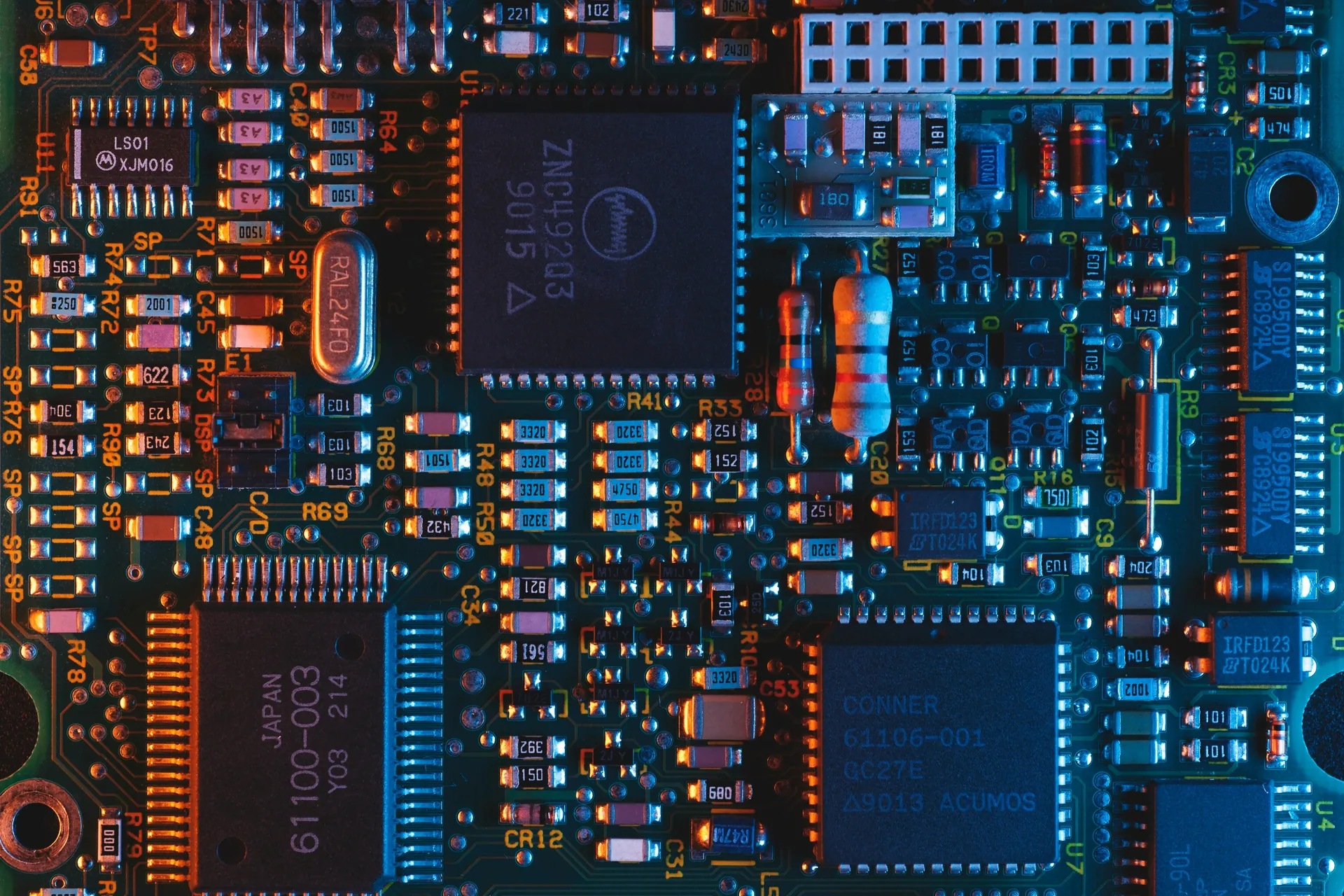Technology is rapidly transforming our world, shaping how we live, work, and interact. As we look to the future, breakthrough innovations are poised to revolutionize industries and solve some of humanity's greatest challenges. From artificial intelligence to quantum computing, emerging technologies are opening up new frontiers of possibility.
In this article, we'll explore five cutting-edge innovations that have the potential to change the world as we know it. Whether you're a tech enthusiast or simply curious about what the future holds, these advancements will give you a glimpse into the exciting developments on the horizon.
So fasten your seatbelts as we embark on a journey through the technologies that will define our future.
AI and Machine Learning
Artificial intelligence and machine learning stand at the cutting edge of technology, transforming industries and redefining our everyday experiences. Far from being mere buzzwords, these innovations are spearheading real-world solutions, promising to tackle complex challenges and unveil unprecedented opportunities.
Let's delve into two pivotal areas where AI and machine learning are making impactful advancements.
Autonomous Vehicles
The vision of self-driving cars is swiftly turning into a tangible reality, propelled by AI and machine learning. These technologies equip vehicles with the capability to sense their surroundings, make immediate decisions, and navigate through intricate traffic conditions.
Leading companies such as Tesla, Waymo, and established car manufacturers are pouring investments into this arena, aiming to enhance transportation safety and efficiency. Machine learning algorithms analyze extensive data from sensors, cameras, and GPS to forge a detailed understanding of the vehicle's environment.
As these systems digest millions of miles of real-world driving data, their proficiency in managing unpredictable road situations improves significantly.
The influence of autonomous vehicles stretches beyond personal mobility. In logistics, self-driving trucks are set to revolutionize long-distance shipping. Urban planning also stands to benefit, as the rise of autonomous vehicles could lead to reduced parking space requirements and changes in traffic flow patterns.
However, obstacles such as regulatory challenges, ethical dilemmas in decision-making algorithms, and public acceptance persist. With ongoing advancements in AI and machine learning, autonomous vehicles are expected to increasingly dominate our transportation landscape.
Advanced Healthcare Diagnostics
In healthcare, AI and machine learning emerge as potent allies, enhancing diagnostic precision and speed. These technologies excel in parsing complex medical imaging data, often surpassing human experts in identifying subtle discrepancies.
For example, machine learning models have demonstrated exceptional accuracy in detecting early-stage cancers in mammograms and lung CT scans, potentially facilitating life-saving early interventions.
Beyond imaging, AI is advancing in its ability to sift through patient data to forecast health outcomes and craft personalized treatment plans. By analyzing a wealth of medical literature, patient histories, and genetic data, these systems can uncover patterns and correlations that may elude human detection. This is especially beneficial for rare diseases or intricate conditions where conventional diagnostics may be inadequate.
Additionally, machine learning algorithms are utilized to process real-time data from wearable devices, enabling ongoing health monitoring and early intervention for diseases such as heart conditions and diabetes.
As these technologies evolve, a shift towards more proactive and personalized healthcare is imminent. AI-driven diagnostics promise earlier disease detection, more precise prognoses, and customized treatment approaches. It is important to recognize that these tools aim to supplement, not supplant, the expertise of medical professionals.
The integration of AI and machine learning into healthcare diagnostics heralds a collaborative future where technology amplifies the capabilities of healthcare practitioners, ultimately enhancing patient care.
Quantum Computing

As we delve deeper into the digital era, quantum computing emerges as a pivotal force in the technological revolution, poised to redefine the boundaries of computational capabilities. This innovative technology leverages the principles of quantum mechanics to process information in ways that classical computers cannot, opening new horizons in computation.
Enhanced Cybersecurity
In today's world, where data breaches and cyberattacks are increasingly prevalent, quantum computing introduces a new dimension to cybersecurity. Quantum key distribution (QKD) stands out as a transformative approach to secure communication. Utilizing quantum mechanics, it generates unbreakable encryption keys, ensuring immediate detection of any interception attempts.
Furthermore, the advent of quantum computing is accelerating the development of post-quantum cryptography. As quantum computers grow in power, they threaten existing encryption methods. Researchers and technology companies are actively developing quantum-resistant algorithms to safeguard sensitive information in critical sectors such as finance, healthcare, and national security.
However, the influence of quantum computing on cybersecurity is ambivalent. While it introduces unparalleled security measures, it also poses a risk to current encryption systems. This reality has sparked a quantum arms race, with nations and organizations heavily investing in both offensive and defensive quantum technologies.
Scientific Discoveries
Quantum computing is poised to revolutionize scientific research across a multitude of disciplines. In chemistry and materials science, quantum simulations promise to model molecular interactions with unmatched precision, potentially fast-tracking drug discovery and the treatment of diseases that have evaded traditional methods.
In climate science, quantum computers offer the potential to significantly improve our ability to model complex climate systems, leading to more precise predictions of climate change effects and aiding in the development of effective mitigation strategies. Their capacity to process extensive data sets and simulate complex environmental interactions marks a significant leap forward in combating global warming.
Additionally, quantum computing is breaking new ground in fundamental physics, enabling researchers to investigate theories such as quantum gravity. This could bridge the gap between quantum mechanics and general relativity, fostering a deeper comprehension of the universe's fundamental laws and potentially unifying the field of physics.
As quantum computing continues its advancement, it is expected to drive breakthroughs across various scientific fields. From uncovering the secrets of dark matter to optimizing energy systems for a sustainable future, the scope of its applications is both vast and thrilling. Nonetheless, it's critical to acknowledge that while progress is swift, many of these applications are in the nascent stages. The forthcoming years will be pivotal in transforming quantum computing's theoretical promise into tangible, world-altering applications.
Blockchain and Cryptocurrencies

As we delve deeper into the realm of emerging technologies, blockchain and cryptocurrencies stand out as transformative forces reshaping our financial landscape and beyond. These innovations are not just disrupting traditional systems; they're creating entirely new paradigms for how we transact, invest, and manage assets.
Decentralized Finance (DeFi)
Decentralized Finance, or DeFi, represents a seismic shift in how financial services are delivered and accessed. Built primarily on the Ethereum blockchain, DeFi applications are creating a parallel financial system that operates without traditional intermediaries like banks or brokers.
This new ecosystem encompasses a wide range of financial services, from lending and borrowing to trading and insurance, all executed through smart contracts on public blockchains.
One of the most innovative aspects of DeFi is yield farming, where users can lend their crypto assets to earn interest and rewards, often in the form of governance tokens. This practice, while potentially lucrative, comes with its own set of risks due to the volatile nature of cryptocurrencies and potential vulnerabilities in smart contracts.
Other key DeFi applications include decentralized exchanges (DEXs) like Uniswap, which allow for peer-to-peer trading without centralized intermediaries, and stablecoins, which provide the stability of fiat currencies with the advantages of cryptocurrencies.
The potential of DeFi to increase financial inclusion and provide access to financial services for the unbanked is significant. However, it also presents challenges in terms of regulation, security, and user education. As DeFi continues to evolve, it's likely to have far-reaching implications for the future of finance, potentially reshaping how we think about money, investment, and financial services.
Supply Chain Transparency
Beyond finance, blockchain technology is revolutionizing supply chain management by enhancing transparency and traceability. In an era where consumers and organizations demand more information about product origins and journeys, blockchain offers a solution to the complex challenge of supply chain visibility.
By creating an immutable, shared ledger of transactions, blockchain enables real-time tracking of products from origin to destination. This level of transparency can help companies detect and mitigate supply chain risks proactively, reduce fraud, and improve overall efficiency. For instance, in the pharmaceutical industry, blockchain is being used to ensure proper storage conditions during transport, with data accessible to all relevant parties.
Blockchain's impact on supply chain transparency extends to sustainability efforts as well. Companies in resource-intensive industries are turning to blockchain solutions to help control and verify Scope 3 emissions, addressing growing environmental, social, and governance (ESG) expectations from consumers and regulators.
However, implementing blockchain in supply chains is not without challenges. It requires collaboration among multiple stakeholders, some of whom may be competitors. Additionally, the technology's effectiveness depends on the accuracy of the data input, highlighting the need for robust data collection and verification processes.
Despite these hurdles, the potential for blockchain to create more resilient, transparent, and efficient supply chains is driving continued innovation and adoption across industries.
Augmented Reality (AR) and Virtual Reality (VR)

As we delve deeper into the realm of groundbreaking technologies, augmented reality (AR) and virtual reality (VR) emerge as transformative forces reshaping our daily lives. These immersive technologies are not merely altering our interaction with digital content; they are revolutionizing industries ranging from education to retail.
Revolutionizing Education
AR and VR are redefining the educational landscape, offering students immersive and interactive learning experiences previously beyond imagination. These technologies dismantle the confines of traditional classroom learning, enabling students to explore complex concepts in a three-dimensional space.
For example, history classes can now transport students to ancient civilizations, walking them through virtual reconstructions of historical sites. Science students can delve into the human body, exploring intricate biological systems in ways that textbooks cannot compare.
This hands-on, experiential learning not only enhances understanding but also boosts engagement and retention of information.
Furthermore, AR and VR hold particular value in special education, creating safe, controlled environments for students with special needs to practice social skills or navigate challenging real-world scenarios. The immersive nature of these experiences can foster confidence and independence in a supportive, low-risk setting.
Changing the Face of Retail
In the retail sector, AR and VR are revolutionizing the shopping experience, blurring the lines between physical and digital realms. These technologies tackle one of online shopping's greatest challenges: the inability to try before you buy.
AR applications now enable customers to virtually "try on" clothes, accessories, or makeup using their smartphone cameras. Furniture retailers use AR to help customers visualize how items would look in their homes before making a purchase.
This not only enhances the shopping experience but also reduces return rates, significantly cutting costs for online retailers.
VR, conversely, allows retailers to create immersive brand experiences. Luxury brands are utilizing VR to transport customers to virtual showrooms or fashion shows, offering exclusive experiences once only available to a select few.
This technology not only enhances customer engagement but also provides valuable data on customer preferences and behaviors.
As AR and VR technologies continue to evolve, we anticipate seeing even more innovative applications in retail. From virtual personal shoppers to fully immersive virtual stores, AR and VR are set to redefine the shopping experience, making it more personalized, interactive, and engaging than ever before.
Biotechnology and Genomics

As we venture further into the world of cutting-edge technologies, biotechnology and genomics emerge as pivotal forces, reshaping our comprehension of life. These fields are not just advancing our scientific insights but are also leading to groundbreaking applications in medicine, agriculture, and environmental conservation.
Gene Editing
Leading the biotechnological revolution, gene editing stands out, with CRISPR-Cas9 technology at the forefront. This transformative tool has revolutionized our capability to alter genetic material with remarkable precision.
Setting itself apart from previous gene editing methods, CRISPR excels in accuracy, efficiency, and versatility, forging new paths for treating genetic disorders and bolstering crop resilience.
Recent strides in CRISPR technology, like the advent of CRISPR-Cas12, have broadened its application scope. CRISPR-Cas12 is promising in its ability to eradicate viruses such as HIV and boasts enhanced target specificity over its Cas9 counterpart.
This technology is not just revolutionizing medical research but is also transforming agriculture by enabling the creation of crops with enhanced traits, such as disease resistance and drought tolerance.
The impact of gene editing reaches beyond the confines of the laboratory, with tangible applications already in play. For instance, CRISPR has been utilized to develop wheat varieties with increased protein and amylose content, and tomatoes that offer higher lycopene levels and extended shelf life.
These advancements underscore the potential of gene editing to tackle global food security and nutritional challenges.
Synthetic Biology
Synthetic biology marks another frontier in biotechnology, marrying engineering principles with biological systems to forge new organisms or biological functions. This interdisciplinary domain melds molecular biology, genetics, systems biology, and engineering to conceive and construct novel biological components, devices, and systems.
One of the most thrilling applications of synthetic biology lies in crafting sustainable solutions for industry and agriculture. Researchers are harnessing microorganisms to produce biofuels, fine chemicals, and materials with unprecedented properties. For instance, the Spanish energy company Repsol is utilizing synthetic biology to engineer microorganisms that generate advanced biofuels through innovative synthetic metabolic pathways.
In healthcare, synthetic biology is propelling drug discovery and production forward. Firms like Ginkgo Bioworks and Amyris are exploiting synthetic DNA and automated platforms to engineer organisms for specific pharmaceutical and sustainable product applications. These breakthroughs are not only expediting the drug discovery process but also facilitating the synthesis of complex molecules that were previously challenging or impossible to produce.
Synthetic biology's potential also extends to environmental conservation, with the development of biosensors for pollutant detection and microbes engineered for the bioremediation of contaminated sites. These applications illustrate how synthetic biology can be leveraged to address critical environmental issues.
As these technologies continue to evolve, they hold the promise to revolutionize various aspects of our lives, from personalized medicine to sustainable agriculture and environmental stewardship. Nonetheless, their swift progression also brings forth significant ethical considerations that society must address as we explore this new frontier of biological engineering.
Conclusion
As we've delved into, AI, quantum computing, blockchain, AR/VR, and biotechnology stand at the brink of reshaping our world. These groundbreaking innovations hold the promise of revolutionizing industries, enriching our daily experiences, and tackling complex global issues. The horizon is brimming with potential, from customized healthcare to engaging educational experiences, sparking both enthusiasm and anticipation.
However, this immense potential comes with significant responsibility. As we navigate the advancements in these technologies, it's imperative to ponder their ethical dimensions and strive to ensure their benefits are universally distributed. The future rests in our collective hands – it's our opportunity to adopt these innovations with care, remain vigilant about their evolution, and actively contribute to forging a brighter future.
The era of technological revolution has arrived; it beckons us to wield its capabilities for the common good.
FAQ
How will artificial intelligence integrate with other emerging technologies to shape the future of innovation?
Artificial intelligence will integrate with emerging technologies like quantum computing, IoT, and blockchain to enhance innovation. AI will improve IoT data analysis, leverage quantum computing for complex problem-solving, and secure blockchain transactions.
This integration will foster smarter systems, efficient processes, and new business models, driving future innovation forward.
What role will renewable energy play in supporting the technological advancements of the next decade?
Renewable energy will play a key role in supporting technological advancements over the next decade by providing a sustainable and reliable source of power. Innovations in solar, wind, and hydroelectric technologies will drive energy efficiency and reduce carbon emissions, fostering a cleaner and more resilient energy future.
How might autonomous vehicles and smart infrastructure transform urban planning and transportation systems?
Autonomous vehicles and smart infrastructure can transform urban planning by reducing congestion, enhancing safety, and reimagining urban landscapes. They may lead to more efficient land use, reduced parking needs, and the creation of green spaces, fostering sustainable and livable cities.
What ethical considerations should be prioritized when developing and implementing new technologies like virtual reality and augmented reality?
Ethical considerations for VR and AR include privacy, consent, and misuse prevention. Developers must ensure transparent data collection practices and prevent harmful content.
Users should be aware of potential psychological impacts and social dynamics influenced by these technologies.
